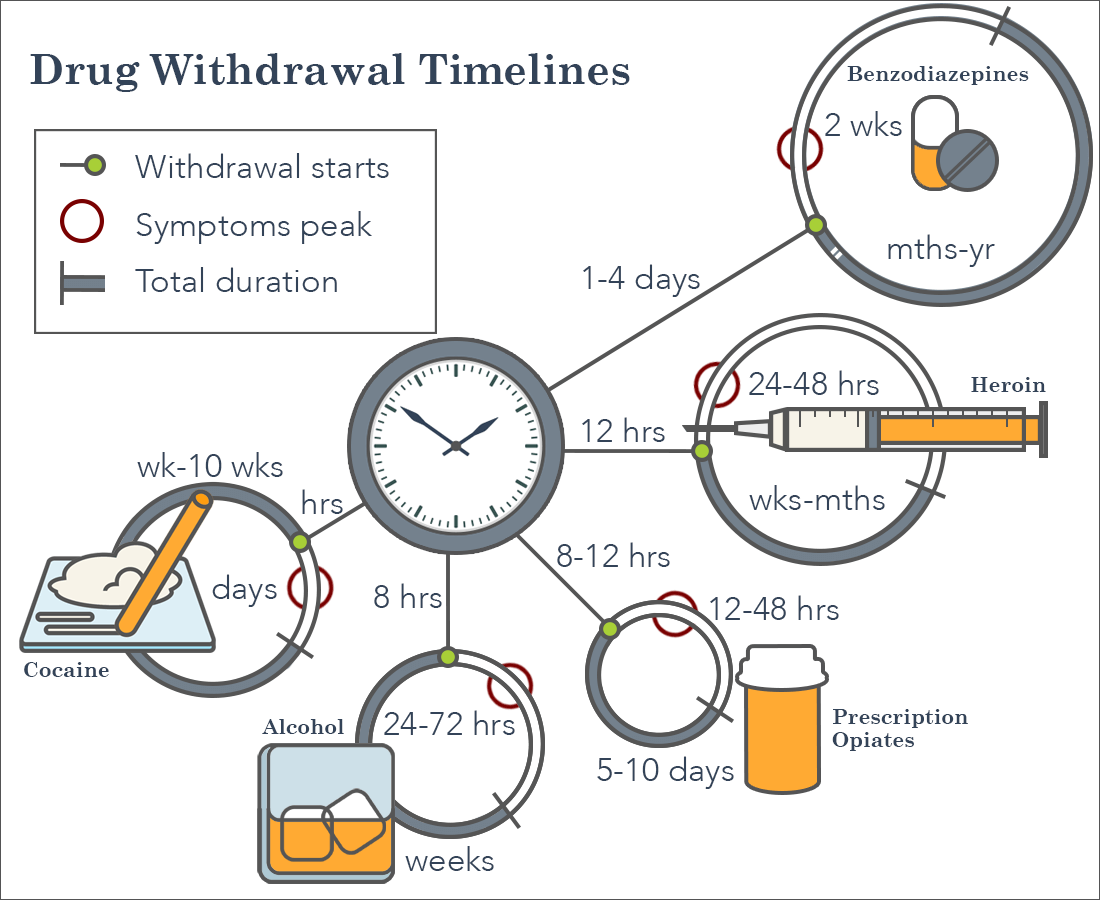
Couples Inpatient Drug Rehab Huntsville Alabama Addiction Treatment
About Couples Addiction Treatment Huntsville, Alabama Addiction Treatment?
Seeking addiction treatment together in a rehab for couples can be beneficial for a number of factors, especially when both partners are dedicated to the relationship and to becoming tidy and sober. Providing that both partners are willing to start the recovery process, couples rehab can assist not just break the cycle of addiction, however likewise strengthen the relationship by helping the couple take a look at and change the issues that led to their addiction in the very first place.
Couples who are addicted to drugs or alcohol frequently experience troubles with setting boundaries, revealing feelings, making choices, parenting, and managing finances. Couples rehab offers education, abilities, training, and therapy to assist partners attain improved ways of handling these difficulties. Even if just one partner has an addiction, the other partner can benefit from couples rehab by learning to handle particular triggers and helping the other stay sober.1 Whether one or both partners need addiction treatment, specialized couples rehab teaches the tools needed to get rid of obstacles, avoid relapse, and attain long-lasting healing.
What to Anticipate in Couples Rehab
The prospective outcome is a lasting healing, and a healthier, happier, and substance abuse-free relationship.
In addition to the standard treatments for drug abuse, participants in couples rehab can expect to concentrate on the health of their relationship. Specific treatment is helpful for dealing with the substance abuse problem, but may overlook or location a lower concentrate on relationship concerns. Combining relationship counseling and drug abuse treatment in couples rehab tackles the issue from all angles, which can provide the very best opportunities for healing and for restoring the relationship. Couples drug and alcohol rehab likewise supplies a framework for life after treatment, as the couple might face uncharted area when they both start living clean and sober lives.
Huntsville Alabama Couples rehab can be either inpatient or outpatient, or a combination in which one partner is treated as an inpatient and the other goes to sessions as an outpatient. The format you pick depends mostly on your special needs as a couple and whether one or both partners are suffering from a drug abuse problem.
Throughout the course of inpatient treatment, the individual fighting with drug or alcohol addiction lives at a residential drug rehab facility, whereas outpatient rehab allows the client to continue living in the house while getting treatment at the facility. No matter the format, medical research study reveals that partners who attend couples rehab for drugs or alcohol together report a higher degree of abstinence, higher levels of complete satisfaction with the relationship, and much better functioning within the household than couples who only choose individual addiction treatment.
Addressing substance abuse problems with the specific tools and methodologies utilized in couples rehab enables you both to focus on attaining sobriety and fixing and strengthening your relationship. The prospective result is a long-lasting healing, and a much healthier, better, and substance abuse-free relationship.
Couples and Addiction
Collaborations where both members of the couple usage drugs are really typical. The National Abandoned Infants Help Resource Center states that, in particular, females who utilize drugs or alcohol are more than two times as likely as men to have a partner who is likewise a substance abuser.
The relationship itself can be damaged by this drug abuse, even if the couple is committed to making the relationship work. Based upon info from the American Association for Marital Relationship and Household Treatment, indications of difficulty for the relationship include:
- Substance abuse or drinking is the only thing the partners take pleasure in doing together.
- Compound usage causes domestic violence on the part of one or both partners.
- The partners need to be intoxicated or high to show affection or speak about the relationship.
- The partners overlook typical duties, such as housework or childcare.
These issues establish on top of the negative effects that establish for each person, complicating substance abuse and often resulting in increased abuse. When this gets to be excessive, one partner might choose to look for treatment.

Your addiction doesn’t have to control your life or your relationship. Don’t wait until the damage is irreparable. Call us now.
Going Through Withdrawal As A Couple In Huntsville, AL
What Are Some Drug Withdrawal Symptoms?
The symptoms of drug withdrawal, and the length of that withdrawal, vary depending on the drug of abuse and the length of the addiction. These are a few withdrawal symptoms and timelines for major targets of abuse:
- Heroin and prescription painkillers: flu-like symptoms lasting an average of 5 days
- Benzodiazepines: anxiety and/or seizures lasting weeks or (in some cases) months
- Cocaine: depression and restlessness lasting 7-10 days
- Alcohol: tremors and/or seizures lasting three days to several weeks
The severity and duration of withdrawal is influenced by the level of dependency on the substance and a few other factors, including:
- Length of time abusing the substance
- Type of substance abused
- Method of abuse (e.g., snorting, smoking, injecting, or swallowing)
- Amount taken each time
- Family history and genetic makeup
- Medical and mental health factors

Learn More About Dual Medical Diagnosis As A Couple
Many people detected with a compound use disorder (SUD) likewise suffer from a co-occurring psychological health or behavioral condition. This is referred to as a dual diagnosis. Individuals with a dual medical diagnosis require an integrated treatment plan that resolves both disorders as interconnected psychological health issues.
“According to the National Survey on Substance Abuse and Health (NSDUH), 45 percent of individuals with addiction have a co-occurring psychological health condition.“
By seeking treatment for addiction and a co-occurring behavioral or mental health condition, you will stand the very best chances of successfully obtaining the fulfilling, healthy life you are worthy of.
Typical Mental Health Issues and Addiction
There are a few psychological health and behavioral disorders that consistently present themselves together with addiction. Oftentimes, these disorders are the underlying reason for an addiction. That’s why it is necessary to never neglect the signs of a mental health or behavioral disorder when it pertains to an individual’s long-term addiction healing plan.
Common mental health conditions linked to substance abuse include the following:
- Attention-deficit hyperactive condition (ADHD).
People with attention deficit disorder (ADHD) might be more inclined to abuse substances as a method to cope with their signs. Lots of people are prescribed stimulants to treat their ADHD, which can be habit-forming and cause a toxic pattern of compound abuse. - Bipolar Disorder.
About half of individuals with bipolar affective disorder likewise struggle with addiction. As with any other condition, it can be tempting to self-medicate. Drugs and alcohol provide a source of short-term relief from psychological circumstances and manic episodes for people with bipolar. - Borderline Personality Condition.
Studies have revealed that addiction and borderline character condition (BPD) typically take place together. Over two-thirds of individuals with BPD have turned toward drug abuse at some point in their lives. - Depression.
An approximated one in 10 grownups in the United States have reported suffering from depression. Lots of people identified with anxiety attempt to self-medicate with drugs or alcohol. This typically makes the issue worse. The crash after the high can be ravaging for those with a pre-existing depressive condition. - Consuming Disorders.
Consuming disorders typically come from strong sensations of inferiority. Drugs that suppress hunger are especially common among individuals with these conditions. - Generalized Anxiety Condition (GAD).
The most typical psychological condition in the U.S., generalized stress and anxiety disorder (GAD) affects 18 percent of the adult population. Individuals who struggle with GAD may be most likely to abuse drugs and alcohol to manage their symptoms. People may also abuse benzodiazepines, which are extremely addictive prescription medications utilized to deal with stress and anxiety disorders. - Compulsive Compulsive Disorder.
Obsessive Compulsive Condition (OCD) causes a variety of undesirable fixations and obsessions, such as an unreasonable worry of bacteria and the need to constantly tidy. There are numerous variations of this disease. People with OCD typically suffer from stress and anxiety and depression as a result of their uncontrolled behavior, which can lead substance abuse. - Post-traumatic stress disorder.
When a person establishes post-traumatic stress disorder (PTSD) their brain produces less endorphins than a healthy brain, making them more likely to turn towards alcohol or drugs to feel happy. According to the U.S. Department of Veteran Affairs, almost 75 percent of soldiers and veterans who experience a terrible or violent occasion during battle report repeated alcohol abuse. - Schizophrenia.
Schizophrenia is characterized by hallucinations and delusional thinking. Diagnosing schizophrenia along with an addiction can be challenging since both conditions share the exact same results. When a person has schizophrenia and utilizes compounds as a way to self-medicate their condition, they risk putting their health even more at risk.
Residential Treatment Programs For Couples Huntsville, Alabama
Residential treatment, among the premium levels of care provided by various Huntsville AL Couple Residential treatment centers, has actually helped numerous individuals in their pursuits of achieving happier, healthier, and more satisfying lives. Within this type of treatment, devoted, expertly trained, and multidisciplinary team member who have knowledge in treating a myriad of psychological health and chemical reliance concerns are on-hand to offer assistance, assistance, and the interventions needed to assist people reach their treatment objectives. In addition, many treatment modalities are used within residential care, which are backed by research study and designed to generate the most favorable treatment results. Among the different methods utilized within this level of care, the following are those that are most frequently implemented into the treatment used within residential treatment programs:
- Cognitive Behavioral Therapy (CBT).
- Acceptance and Dedication Treatment (ACT).
- Dialectical Behavior Modification (DBT).
- Trauma-focused Cognitive Behavioral Therapy (TF-CBT).
- 12-Step method
Couples Rehabilitation Centers
Why Choose A Couples IOP Programs Huntsville, Alabama
The structure of Couples outpatient programs Huntsville, AL Extensive outpatient treatment, or IOP, is a science-based technique for addiction healing. However, outpatient treatment isn’t right for every single rehab attendee. What is IOP, and why do therapists base participation eligibility on specific aspects?
An intensive outpatient program can be the very first line of treatment, an action up from a less structured outpatient program when required, or a step down from a residential program after a certain quantity of progress is made. This assists to form a smooth continuum of care. People may attend a detox program prior to participating in an IOP when drugs or alcohol are still in the body and require to be securely processed out.
While IOPs can differ regarding what is included, in basic, there are a number of core services normally provided, according to the Drug abuse and Mental Health Services Treatment Enhancement Protocols (SAMHSA SUGGESTION). These consist of:
- Group and specific therapy sessions
- Behavior modification sessions (both private and in a group setting).
- Tracking of alcohol and substance abuse.
- Case management.
- Medical and psychological health treatment.
- Medicinal tools.
- Life abilities trainings.
- Educational opportunities.
- Support group conferences.
- Access to 24-hour crisis management.
Reach out to us day or night – Our caring Treatment Consultants are waiting for your call right now. Call Now
Advantages of an Couples IOP
An outpatient program might be more economical than a residential one, offering couples a more affordable choice for care. Insurance may also cover outpatient services or require individuals to attempt outpatient care prior to offering coverage for a residential program.
IOPs are usually best suited to individuals who have a strong support group at home. Both parties need to be on board with the treatment strategy, and willing and able to foster an encouraging environment that contributes for healing. Highly trained experts work carefully with households and people to make sure that the care plan continues to be beneficial throughout the entirety of an IOP, making modifications to services and programming when needed.
Living in a Sober Home Together: What to Expect
An Huntsville, AL couples sober living Sober living houses are substance-free living environments for people in recovery from drug and alcohol addiction. These kinds of homes vary from rehab centers. These homes are usually found in peaceful communities, similar to a typical home. Individuals who live in a sober living house can generally reoccur as they please as long as they follow curfew and rules and regulations. Residents are typically needed to take random drug tests to make sure sobriety. People who live in sober houses are anticipated to be responsible for themselves, pay for rent, and purchase and prepare their own food, just like if they were living in a regular home.
Learning how to live sober independently is an important part of the recovery process. The majority of addicted people have an enabler in their life who would typically do these things for them. Dealing with this enabler made it so they never needed to discover how to live individually and take obligation for their actions. Sober living houses require a certain level of accountability from their locals and enable opportunities for personal development.
- Main Factors for Living in a Sober Living House
- Responsibility
- Safe and sober living environment
- Strong support group
- Fulfilling like-minded individuals in sobriety
- Routine drug screening
- Safe combination back into society
- Fresh start
When you look for an addiction treatment program, it pays to understand aftercare services each center utilizes. Throughout the healing treatment, the quality and period of aftercare services can make a substantial distinction in your possibilities for lasting success.
Make the Choice As A Couple Today
When the couple has finished rehab, and the partners are managing recovery together, they can provide each other an excellent source of assistance for future obstacles. With commitment, they can keep each other on track, help each other prevent triggers and cravings, and remind one another about the tools and skills learned in rehab. A challenge may occur if among the partners does relapse, as this makes it most likely that the other partner will relapse too. However, with continued participation in aftercare programs and a peer support system, the couple should have the ability to maneuver through these challenges and continue in recovery.
Take a look at what couples rehab in Huntsville, Alabama has to offer Call NOW.

Recent Comments